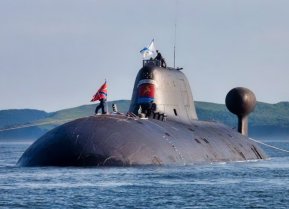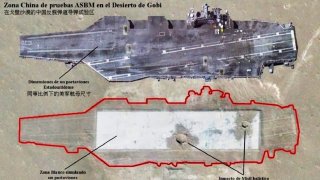Expert: Taiwan’s Military Lacks the Ability to Prevent Attack by China
Taiwan's military readiness is under scrutiny as retired Taiwanese Air Force Deputy Commander Chang Yen-ting expressed concerns about the island's ability to counter potential Chinese military actions.
Summary: Taiwan's military readiness is under scrutiny as retired Taiwanese Air Force Deputy Commander Chang Yen-ting expressed concerns about the island's ability to counter potential Chinese military actions.
-This comes after a Chinese military aircraft was detected alarmingly close to Taiwan, raising fears of a possible "decapitation strike." Despite these concerns, Taiwan's current Defense Minister, Chiu Kuo-cheng, reassured that their detection capabilities are adequate for preventing such attacks.
-Additionally, the U.S. has committed to supporting Taiwan with a portion of a newly passed $95 billion aid package, enhancing Taiwan's defense capabilities against potential threats. This situation occurs amidst heightened tensions and frequent Chinese military activities near Taiwan, which continue to escalate regional instability.
Taiwan's Military Readiness Questioned Amid Rising Chinese Provocations
A retired Taiwanese air force deputy commander says Taiwan’s military lacks the ability to prevent a Chinese attack.
Chang Yen-ting made the comment after a Chinese military aircraft was identified just 76 kilometers from Keelung City on Taiwan’s northern coast. The Chinese aircraft would have needed just five minutes of flight time to reach Taiwan’s Presidential Office building.
“The Chinese aircraft was a part of the routine formations of PLAAF and PLAN that Beijing keeps sending into Taiwan’s Air Defense Identification Zone (ADIZ) to assert its territorial sovereignty,” The Eurasian Times reported April 25. “Since last year, Chinese ADIZ flights have become bolder and begun crossing the imaginary ‘median line,’ conveying that they are undeterred by both Taiwan and the United States.”
Raising a Red Flag
According to Chang, the Taiwanese military would not have been able to react in time to prevent the Chinese aircraft from targeting the Presidential Office building. Such an attack is referred to as a “decapitation strike.”
“The national army may not have warning time. The media is concerned about the suspicion of beheading operations,” Chang said.
However, his pessimistic viewpoint is not universally held. Taiwan’s current Defense Minister, Chiu Kuo-cheng, dismissed Yen-ting’s fears, saying that Taiwan’s detection of the Chinese aircraft “served precisely to prevent [a decapitation strike].”
The threatening aircraft was not the only Chinese presence detected in close proximity to Taiwan. Chinese research ship Xiang Yang Hong 06 was spotted moving from south to north near the island nation. Chiu said Taiwan was properly tracking the ship.
“The ship often appears, but because this time point is relatively sensitive, the Coast Guard and the military have response methods and mastery,” Chiu said.
In general, the ADIZ has become a hot spot between China and Taiwan.
US aid to Taiwan
A portion of a newly passed $95 billion aid package from the U.S. will be sent to Taiwan in the form of arms support. China, for its part, opposed the transfer of arms. The U.S. is Taiwan’s most important international partner, despite the absence of formal diplomatic ties. China views Taiwan as Chinese territory. The three-way dispute could prove to be a flashpoint between the world’s two most powerful nations.
A spokesman for China said that the U.S. bill will “send the wrong signal to Taiwan independence separatist forces, and we are resolutely opposed to it,” adding that “we urge the United States to take concrete actions to fulfill its commitment not to support Taiwan independence and to stop arming Taiwan in any way.”
China’s Foreign Ministry argued that “military collusion” between the U.S. and Taiwan would only inflame tensions between the U.S. and China, further risking conflict and confrontation. U.S. Secretary of State Antony Blinken will arrive in China next week; Taiwan will most certainly be a topic of discussion.
About the Author: Harrison Kass
Harrison Kass is a defense and national security writer with over 1,000 total pieces on issues involving global affairs. An attorney, pilot, guitarist, and minor pro hockey player, Harrison joined the US Air Force as a Pilot Trainee but was medically discharged. Harrison holds a BA from Lake Forest College, a JD from the University of Oregon, and an MA from New York University. Harrison listens to Dokken.


